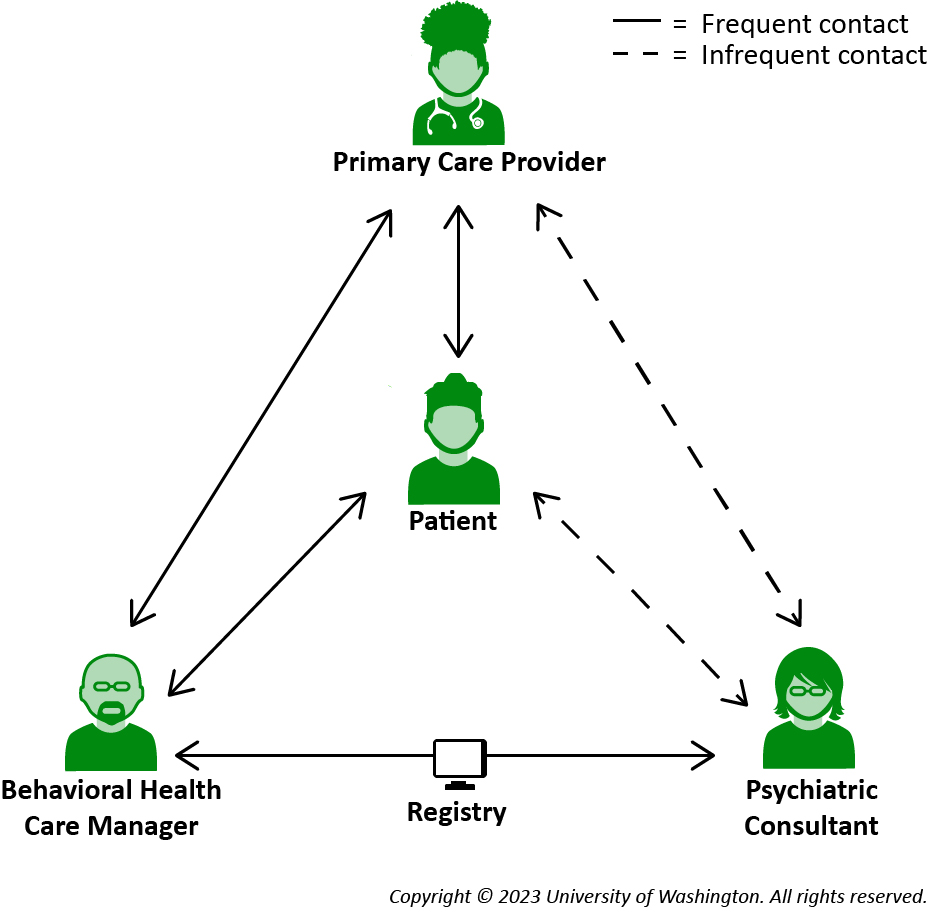Collaborative Care (CoCM) is a specific type of integrated care developed at the University of Washington to treat common mental health conditions in medical settings like primary care. Behavioral health conditions such as depression, anxiety, PTSD, alcohol or substance use disorders are among the most common and disabling health conditions worldwide. Based on principles of effective chronic illness care, CoCM focuses on defined patient populations who are tracked in a registry to monitor treatment progression. The treatment plan focuses on measurement-based treatment to target, to ensure the patient’s goals and clinical outcomes are met.
Collaborative Care is different from co-located care and has two new roles added to the care team: a Behavioral Health Care Manager (BHCM) and a Psychiatric Consultant. In Collaborative Care, patients are routinely screened for depression and/or other behavioral health conditions using a standardized tool such as the PHQ-9 for depression.
How it works
If a patient screens positive during the routine screening, the Primary Care Provider (PCP) makes a diagnosis and recommends Collaborative Care treatment, when appropriate. A warm connection is made with an in-house BHCM.
The BHCM will provide treatment and coordinate care with other team members. Their responsibilities include engaging the patient, providing brief therapeutic interventions, following up with patients, monitoring patients’ progress using the standardized tool, and maintaining a population-based registry to track data.
The BHCM’s follow-up and tracking allows patients to be identified if they are not improving with their current treatment plan. If a patient is not improving, the case will be reviewed as a part of a weekly case consultation session between the BHCM and a Psychiatric Consultant.
The Psychiatric Consultant does not see the patient face-to-face as in traditional therapy but provides treatment recommendations and support to the primary care team.
The CoCM Team
CoCM requires a team of providers. Trained Primary Care Providers (PCP) work with embedded Behavioral Health Care Managers (BHCM) to provide evidence-based medication or psychosocial treatments. The PCP and BHCM are supported by a Psychiatric Consultant who meets regularly with the BHCM for Systematic Caseload Review (SCR), where they consult on patients and adjust treatment for those who are not improving as expected.

Questions?
For more information about Collaborative Care and its evidence base, please visit the AIMS Center’s website.